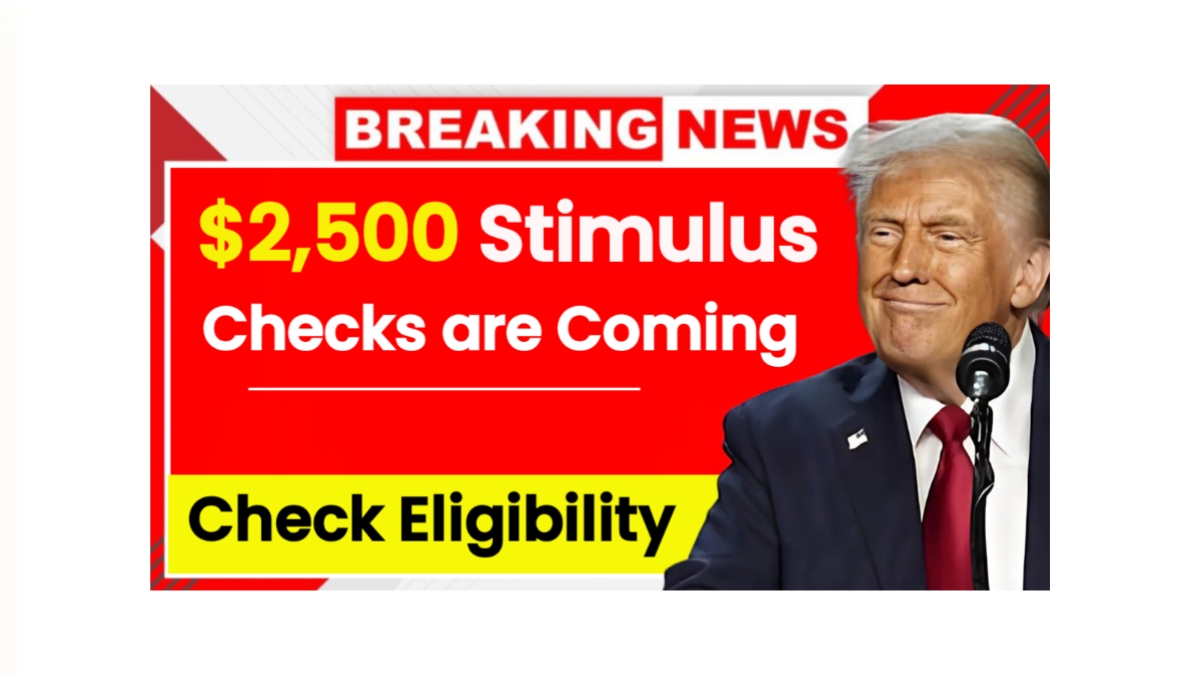Despite headlines suggesting new $2,500 federal stimulus checks are being distributed, the reality is more nuanced. While there is no new nationwide $2,500 stimulus program, Americans still have access to various financial relief options through a combination of state-level initiatives and unclaimed federal benefits.
Last Chance for Unclaimed Federal Payments
The IRS identified approximately one million taxpayers who were eligible for the 2021 Recovery Rebate Credit but did not claim it on their tax returns. These taxpayers may receive up to $1,400 per person (or $2,800 for married couples filing jointly), with families of four potentially receiving up to $5,600. The agency began sending these automatic payments in December 2024, with most expected to arrive by late January 2025.
If you haven’t yet received this payment and believe you’re eligible, time is running out. The IRS has set a firm deadline of April 15, 2025, for those who haven’t filed their 2021 tax returns to submit them and claim this credit. This applies even to those with minimal or no income during that period.
Who Qualifies for Unclaimed Federal Benefits?
Eligibility for the Recovery Rebate Credit depends on your 2021 income. The full credit is available to individuals with adjusted gross incomes up to $75,000 and married couples filing jointly with incomes up to $150,000. The credit phases out completely for individuals earning $80,000 or more and couples earning $160,000 or more.
To check if you’ve already received your Economic Impact Payments, you can access your IRS online account and view your tax records. This will show the total amounts received from all three stimulus payments.
State-Level Relief Programs
While federal stimulus programs have largely concluded, many states have stepped in with their own initiatives to help residents manage rising costs.
Georgia Surplus Tax Refund
Georgia is providing one-time tax rebates from its revenue surplus. Eligible residents can receive $250 (single filers), $375 (heads of household), or $500 (joint filers). To qualify, you must have been a full-year Georgia resident in 2023 and 2024 and filed tax returns for both years. The deadline to qualify is May 1, 2025.
Colorado TABOR Refunds
Colorado residents are benefiting from the state’s Taxpayer’s Bill of Rights (TABOR), which requires excess tax revenue to be returned to taxpayers. Individual filers can receive approximately $800, while joint filers may get up to $1,600. Eligibility requires filing a 2024 Colorado state tax return and meeting residency requirements. The state began issuing these refunds in March 2025, with payments continuing through June.
New York Inflation Relief
New York has proposed $400 “inflation refund” checks as part of a broader support initiative. To qualify, individuals must earn less than $150,000 (or $300,000 for joint filers) and meet state residency criteria. The program also includes expansions to child tax credits and school meal programs.
California Support Programs
California is testing innovative approaches to financial assistance. Select low-income families with children under age 6 in targeted ZIP codes may receive $725 monthly payments for 12 months as part of a guaranteed income pilot program.
Be Wary of Misinformation
It’s important to note that some reports about large federal stimulus checks ($1,550, $2,000, or higher) circulating online are unconfirmed. The IRS has not made any official announcements about a new round of federal stimulus payments. Always verify financial information through official government websites like IRS.gov before sharing personal or banking details.
How to Maximize Your Benefits
To ensure you receive all eligible financial assistance:
- File all required tax returns – Most relief programs require recent tax filings, even if you owe nothing.
- Check official state websites – Each state’s department of revenue provides current information about available relief programs.
- Watch income thresholds – Many programs phase out benefits at certain income levels. Consider legitimate deductions or retirement contributions that might help you qualify.
- Set up direct deposit – This is typically the fastest way to receive any payments.
- Keep your address updated – Ensure the IRS and state tax agencies have your current mailing address.
Looking Ahead
While the era of large-scale federal stimulus checks appears to be over, the combination of unclaimed federal benefits and state-level programs provides meaningful financial relief for many Americans. As inflation and living costs remain concerns, more states may introduce similar programs throughout 2025.
Remember that most legitimate relief payments are tax-free, but it’s always wise to confirm with a tax professional about your specific situation.
Disclaimer: This article provides general information based on current policies and is not financial advice. Programs, deadlines, and eligibility requirements may change. Always verify details through official government sources before making financial decisions.





